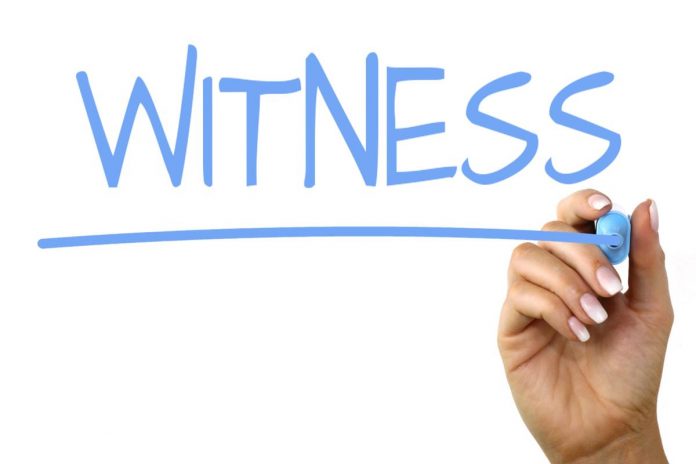This article is written by Ishan Arun Mudbidri, from Marathwada Mitra Mandal’s Shankarrao Chavan Law College, Pune. This article talks about the recent developments regarding vulnerable witnesses and the protection of witnesses in India.
This article has been published by Sneha Mahawar.
Table of Contents
Introduction
Witnesses play an important role in legal proceedings. Witness protection in India is not a heavily discussed matter as compared to other issues like rape, domestic violence, etc. and frankly speaking, it is unfair and wrong. Both parties to the case know that an individual witness can hold the verdict in their favor, consequently, many times witnesses are either emotionally blackmailed or bribed to stay quiet and change their stand in a case. It is often seen in such instances, that witnesses who are minors or are suffering from additional difficulties fall prey. Such people are termed as vulnerable witnesses. The Supreme Court in a recent remark gave clarification regarding the term ‘vulnerable witness’.
Who is a witness
A witness is a person who sees crime happen and who has the ability to express it when asked by the court. Under Section 118 of the Indian Evidence Act 1872, the term witness is defined as a person who is competent enough to understand the questions asked by the court. Thus, according to this section, any person can be a witness unless they are unable to understand and answer the questions that are asked to them.
Vulnerable witness
The Supreme Court while hearing a special leave petition in the case of Smruti Tukaram Badade v. State of Maharashtra and Anr. (2019) orally remarked that the definition of the term ‘vulnerable witness’ might not be constrained to child witnesses. This was in reference with the Delhi High Court Guidelines on the protection of vulnerable witnesses wherein, Section 3 of these guidelines define a vulnerable witness as a child who has not yet completed 18 years of age. The term vulnerable witness is not included under Section 118 of the Indian Evidence Act. The Youth Justice and Criminal Evidence Act 1999 of the United Kingdom mentioned certain measures for the protection of vulnerable witnesses. There are certain people who are unable to testify or give evidence to the court due to certain additional difficulties like mental disorders, physically handicapped or are unable to cope due to intelligence impairments, and are below 18 years of age. Such people are termed as vulnerable witnesses.
If so, can a child testify
A child can testify if the court thinks that he/she is able to answer the questions put forward rationally provided he/she is not a toddler. In the case of Dhanraj and Ors, v. State of Maharashtra (2002), the witness was a child of class VIII. The Supreme Court held that a child of class VIII who is not very small will be having enough intelligence to understand the facts and answer the questions put forward. Hence the testimony of the child was heard.
Recent developments relating to the concept of vulnerable witnesses in India
The Supreme Court in 2017, ordered for the immediate establishment of at least two vulnerable witness deposition centres under every High Court’s jurisdiction. The protection of vulnerable witnesses in criminal proceedings has become a growing issue. Children, rape survivors, victims of sexual abuse, etc. often find the court environment stressful. They are constantly under threat, if not physically, mentally. The term secondary victimization is often used while describing vulnerable witnesses. This simply means the mental suffering endured by the victims due to other institutions or individuals after the crime has been committed mostly in sexual violence cases. The same thing can be seen when witnesses who are small children or people with certain disabilities are bribed or threatened to change their stand. Due to this, many times such people are not ready to give their testimonies.
Delhi High Court guidelines
The Delhi High Court in 2017, released a set of guidelines for the protection of vulnerable witnesses in India.
Objectives of these guidelines
- To strike a balance between the fairness of the trial and ensure that the witnesses are able to give evidence.
- To reduce secondary victimization and harm caused to vulnerable witnesses as a result of their contribution to the criminal justice system.
- To secure the evidence given by the witnesses.
Important sections
- Section 13 of the guidelines states that the vulnerable witness shall be allowed a pre-trial visit of the court to get familiarized with the surroundings.
- Section 17 states that the vulnerable witness shall be provided legal assistance by the court.
- Section 24 states that the court shall make sure that the witness is in a comfortable environment.
- Section 34 states that the court shall explain to the vulnerable witness to listen to the questions properly and answer them truthfully.
- Under Section 38 clause (a) the court shall maintain confidentiality and seal the records of the witness.
- Section 39 states that the court shall impose protective measures if the safety of the child or any other vulnerable witness is at risk. The protective measures include; avoiding direct or indirect contact between the child and the accused or any other party related to the case, protecting the witness by calling the police or other relevant agencies.
The Bandu case
The Apex Court’s recent remarks on vulnerable witnesses came in compliance with its decision in the State of Maharashtra v. Bandu (2018) case. The victim, in this case, was a deaf and dumb 14-year-old girl who was raped allegedly by the respondent i.e Bandu. The High Court set aside the conviction of the respondent on the ground that the victim was not cross-examined. The case went to the Apex Court who held that, even though the victim was not cross-examined, there was plenty of evidence to prove that she was raped by the respondent. After passing its Order, the Court looked into a suggestion stating that special examination centres must be set up for examining vulnerable witnesses so as to make them comfortable to give their statements. The Court further asked for the status of setting up vulnerable witness deposition centres and pressed for the same.
Vulnerable witness deposition centres
The Court ordered the States to set up at least two vulnerable witness deposition centres under the jurisdiction of every High Court in the country. This was in view of the stress and trauma these witnesses go through during court proceedings. These centres are specially set up for child witnesses, and victims turned witnesses in heinous crimes like rape, sexual assaults, etc. who need protection. These centres will have all the protective measures in place to ensure a safe haven for the witnesses. In 2019, Gujarat established its first vulnerable witness deposition centre in Vadodara. The centre was directly attached to the Chhota Udepur District Court with a special entry and exit system. The centre was designed in a way that there won’t be any direct or indirect contact between the witness and people outside. Further, the centre has a separate washroom, pantry, television set, children’s play area, etc.
Witness protection in India
Witness protection has become a raging issue in India. In the case of Swaransingh v. the State of Punjab, (1957) the Court held that in a criminal case evidence is admissible in law. To provide such evidence, witnesses are important. It is rarely seen that a witness has changed his/her stand by his/her own free will during a trial. In the case of Mahendra Chawla and Ors. v. Union of India and Ors. (2019), the Court held that one of the main reasons for witnesses changing their stance can be the lack of proper protection given by the state, hence a threat to life. Such witnesses are known as hostile witnesses. The 4th National Police Commission Report 1980, states that most witnesses in India are turning hostile because of pressure and coercion by the accused and that a regulation on the manipulation of witnesses is necessary. Hence, the state of witnesses in India is bad. There’s a lot of stress witnesses have to deal with. First witnessing the entire crime scene and then staying in fear against a possible threat to their lives.
Right to a Fair Trial
The Indian Constitution provides for the Right to Fair Trial under Article 21. This has become an important feature of the Indian democratic system. It is also recognized as a fundamental right. Witnesses can completely change the scenario of a case hence, deserve a free and fair trial. In the case of Zahira Habibullah Sheikh & Anr. v. State of Gujarat & Ors., (2006) the Supreme Court held that a witness should not be forced or threatened to give false evidence. If done so, the trial would not be considered fair. This principle was mainly put forth for the accused in a case. Hence to maintain fairness in a trial, the accused should be allowed to cross-examine any number of witnesses in a proceeding. In the case of Mohd. Hussain Julfikar Ali v. the State (Govt. of NCT) Delhi, (2012), out of 56 only one witness was cross-examined. So the Court ruled in favor of the appellant and stood down his conviction.
Witness Protection Scheme 2018
The Witness Protection Scheme in 2018, is the first legal enactment set up by the Indian Government. The need for such an Act was due for a long time. The Supreme Court in the State of Gujarat v. Anirudh Singh (1997) held that it is the duty of every witness to help the State by giving evidence. The objective of the scheme is simple. Protect and safeguard the interests of the witnesses in India. The Scheme further enables the witness, a police escort to the courtroom. In worst-case scenarios, the Act divides witnesses into three categories:
- Class A:- When the witness and his/her family members get threats to their lives during the proceedings.
- Class B:- When the safety, reputation, and property of the witness and his/her family members during the investigation.
- Class C:- When the threat only extends to harassment of the witness and his/her family members during the proceedings.
The Scheme further provides for a Witness Protection Fund, which is created for the expenses incurred during a witness protection order. Witness protection Order is the detailed list of protective measures to be passed by a competent authority. Further, the Scheme ensures full identity protection of the witness and his/her family members during the investigation. Some of the other protective measures mentioned in this Scheme include:-
- Installation of security cameras at the witness’s house.
- Regular patrolling, and recce of the witness’s house.
- Monitoring the witness’s call records, emails, messages, etc.
- Relocation of the witness based on the Threat analysis report.
- Emergency contact numbers are provided to the witness.
Conclusion
Jeremy Bentham rightfully says, “Witnesses are the eyes and ears of Justice”. Since the 14th Law Commission Report in 1958, which first mentioned witness protection in India, this topic has come a long way. Likewise, various other enactments including, the Protection of Children from Sexual Offences Act 2012, the Scheduled Caste and Tribes (Prevention of Atrocities) Act 1989, the National Investigation Agency Act 2008, etc. have mentioned the need to safeguard the rights of witnesses and give them adequate protection. From the crime scene to the courtroom, a witness has to experience everything. To add further misery, they are exposed to life threats, coercion, harassment, etc. by the accused. Vulnerable witnesses are more prone to such suffering. In this situation, they tend to crack and turn hostile. To avoid this, the stance of the Indian Government is important. The Witness Protection Scheme 2018, and also the setting up of separate vulnerable witness deposition centres are important and effective steps taken by the administration. However, apart from the Delhi High Court guidelines, there is no other legal mention for the protection of vulnerable witnesses. Hence, unanimous and separate legal provisions for safeguarding the rights of vulnerable witnesses including strict punishments for those who manipulate the witness is the need of the hour. As the name suggests, these kinds of witnesses are regular targets and can get easily manipulated but, their courage and strength to come out and testify can put those guilty behind bars. Hence, their protection becomes very important.
References
- http://delhihighcourt.nic.in/writereaddata/upload/notification/notificationfile_lcwcd2x4.pdf
- https://www.mha.gov.in/sites/default/files/Documents_PolNGuide_finalWPS_08072019.pdf
- https://www.livelaw.in/top-stories/supreme-court-establishment-of-vulnerable-witness-deposition-courtrooms-child-witness-187253
- https://www.mondaq.com/india/trials-appeals-compensation/914274/witness-protection-safeguarding-the-eyes-and-ears-of-justice
Students of Lawsikho courses regularly produce writing assignments and work on practical exercises as a part of their coursework and develop themselves in real-life practical skills.
LawSikho has created a telegram group for exchanging legal knowledge, referrals, and various opportunities. You can click on this link and join:
https://t.me/joinchat/L9vr7LmS9pJjYTQ9
Follow us on Instagram and subscribe to our YouTube channel for more amazing legal content.
 Serato DJ Crack 2025Serato DJ PRO Crack
Serato DJ Crack 2025Serato DJ PRO Crack











 Allow notifications
Allow notifications


